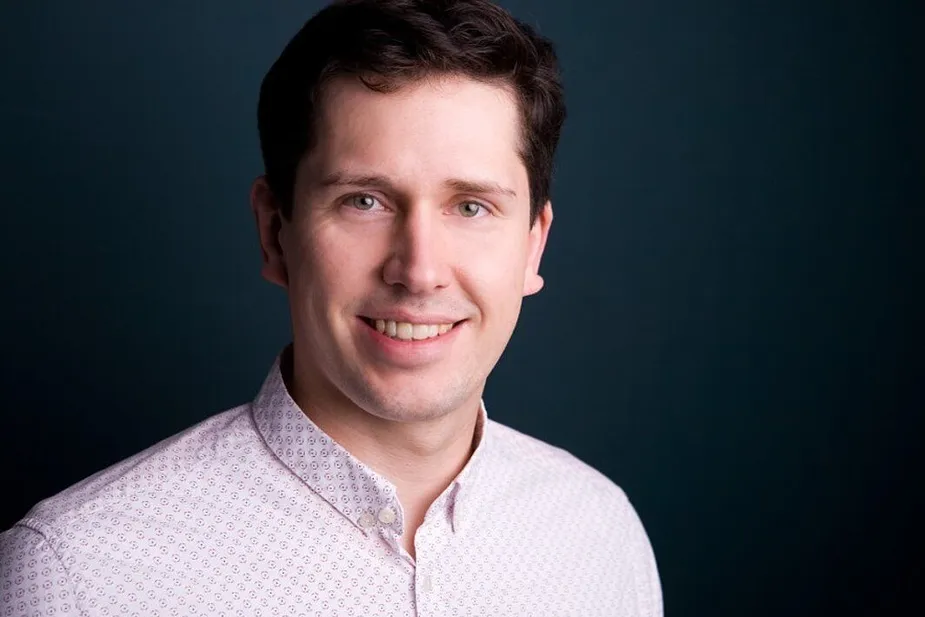New Leibniz Junior Research Group at Max Born Institute
Dr Daniel Schick is in charge of investigating fundamental aspects of ultrafast magnetization dynamics on the nanoscale using laser-driven soft-X-ray sources

Starting in January 2023, the research portfolio of the Max Born Institute will be complemented by a new Junior Research Group led by Dr. Daniel Schick. His proposal “Following Complex Spin Structures in Time and Space” was granted an overall funding of 1.5 million euros over five years within this year’s Leibniz “Best Minds” Competition. Embedded in the excellent research infrastructure at the Max Born Institute, Dr. Schick will establish his own group to study fundamental aspects of ultrafast magnetization dynamics on the nanoscale using unique laser-driven soft-X-ray sources.
Resources for establishing an independent research program at a renowned institute in addition to great networking and training opportunities – these are the optimal conditions for building a scientific career on, and these ingredients are all part of the Leibniz Junior Research Group program. Within this year’s competition, Dr. Daniel Schick was one of five successful researchers across all scientific disciplines covered by the Leibniz Association to acquire this prestigious grant. At the Max Born Institute, the new Junior Research Group will be embedded in Division B “Transient Electronic Structure and Nanophysics” and closely linked to the research activities on ultrafast and nonlinear phenomena in condensed matter of the institute.
In particular, the group will utilize ultrashort laser pulses to manipulate magnetic order in technologically relevant nanostructures, which are at the heart of many current and future technologies, e.g. for storing and processing information. Gaining actual functionalities from such laser-driven processes relies on progress in the fundamental understanding of the light-induced spin dynamics on the relevant pico- to femtosecond time scales. This ultimately requires access to the transient spatial magnetization profiles, which have been hardly accessible in experiments so far. The new Junior Research Group will use resonant soft-X-ray scattering as a versatile tool that, combined with polarization-sensitive scattering simulations, can provide the missing information. Based on unique laser-driven soft-X-ray sources developed at the Max Born Institute, Dr. Schick’s team will be able to investigate such complex spin structures in small-scale laboratories as opposed to large-scale facilities, as was previously the case. This allows studying fundamental aspects of photoinduced spin dynamics in a variety of nanostructures in a more systematic way than ever before, in order to identify ultrafast and more-energy efficient pathways to control magnetic order.
Already during his PhD at the University of Potsdam, Daniel Schick studied ultrafast dynamics of correlated materials such as ferromagnets, ferroelectrics, and multiferroics using ultrashort hard-X-ray pulses. Afterwards, he was granted a Helmholtz Postdoc Programme fellowship at the Helmholtz Zentrum Berlin. There Dr. Schick focused on femtosecond resonant soft-X-ray scattering techniques for studying ultrafast spin dynamics mainly at the FemtoSpeX laser-slicing facility at the storage-ring BESSY II. During this three-year period, he also worked on correlated perovskites as a visiting scientist at the ICFO in Barcelona, Spain. In 2017 Dr. Schick joined Division B of the Max Born Institute as a postdoctoral researcher to establish a closer link between his research at large-scale facilities with laser-driven laboratory-based experimental techniques.
Contact:
Max Born Institute for Nonlinear Optics and Short Pulse Spectroscopy
Transient Electronic Structure and Nanophysics
Dr. Daniel Schick
Tel. +49 30 6392-1311
Email Daniel.Schick(at)mbi-berlin.de
mbi-berlin.de
Press release MBI, 25 November 2022